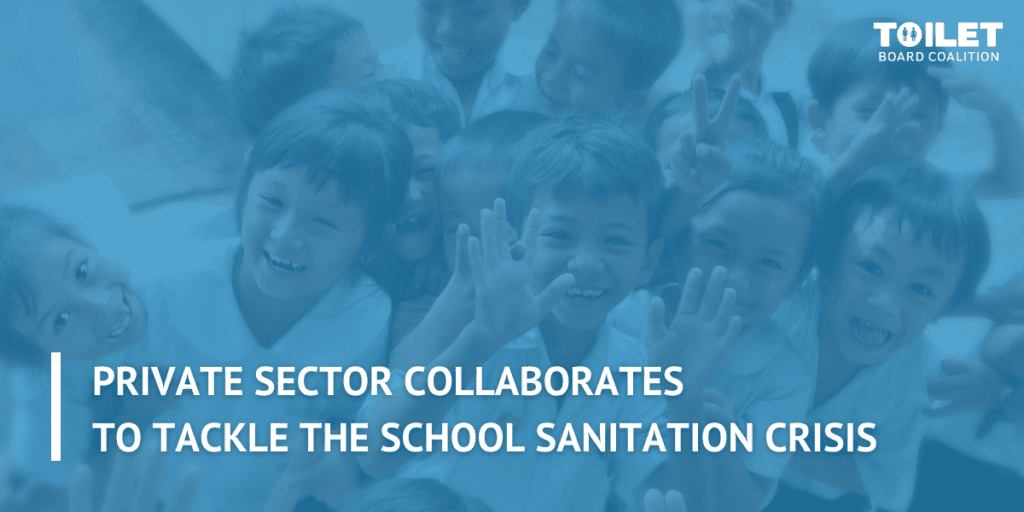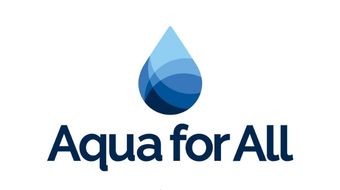
Unilever, Kimberly-Clark and LIXIL together with the Toilet Board Coalition invite corporates to engage in research to curate learnings from development programmes in schools. A major issue in today’s schools is the lack of basic sanitation. Namely, over 600 million children face a reality without basic school sanitation (2020 WHO/UNICEF Joint Monitoring Programme Report). Sanitation and education are closely linked. Providing well operated and maintained school sanitation increases a student’s educational performance, impacts girls’ menstrual hygiene management, prevents absenteeism in class and incentivises healthy behaviour from the get-go – contributing towards both Sustainable Development Goal 6 (Water and Sanitation) and 4 (Quality Education).
The current disparity indicates an urgent need for new approaches and solutions to be explored. Three Steering Committee Members of the Toilet Board Coalition, Unilever, Kimberly-Clark and LIXIL hosted a virtual event on World Toilet Day last year (November 19th 2021), where global leaders discussed the extreme lack of school sanitation and showcased business potential and opportunities for investment within the sector. Building on the event, these three parties, through the Toilet Board Coalition are working on a research project to examine existing school (sanitation)programmes and identify gaps, challenges, and successes in their implementation, specifically focusing on investments and the social and economic returns for private sector engagement.
“Working for over a decade with partners like UNICEF and GiZ has shown us that investing in school sanitation delivers meaningful value. Both critically in terms of children’s health, wellbeing and educational outcomes. And also tangible value for our business driving purchase consideration and brand differentiation. Yet, school sanitation is often underappreciated and overlooked. This first-of-its-kind report aims to distil learnings from the private sector, as well as NGOs, donor organisations, development banks and the schools themselves into a useful set of principles to help more businesses benefit from the value investing in school sanitation programmes can provide,” said Simran Gill, Global Brand Manager at Domestos, Unilever.
Over the last six years, The Toilet Board Coalition has worked with a diversity of businesses providing sanitation products and services, touching more than 70 million people and enabling over $22m in finance. Having framed the opportunity of the Sanitation Economy, the Coalition has assembled growing evidence of significant new benefits for business and society across sectors – an estimated $148 billion annual opportunity by 2030 in India alone. The aim is to transition this knowledge into opportunities specifically related to improving school sanitation. Additionally, UNICEF estimates that for “every dollar invested in water and sanitation, $4.30 is generated in economic returns through increased productivity” (UN & WHO, 2012).
“This level of return on investment should give us all confidence that the private sector can be an amplifier to drive investment in school sanitation while improving education alongside it, which will lead to significant social and economic benefits,” said Alma Alejandro, Marketing Director for Global Intimate Care Brands at Kimberly-Clark.
Hereby the Coalition presents an opportunity for corporates that are involved in school development programmes to join businesses, investors and industry experts and engage in this demanded report. Participating in the research will involve a 60 minute interview to share school development programmes initiated by your organization and factors that made them successful. Additionally, you’d be invited to join a total of four roundtable sessions, bringing together corporate partners, investors, and experts to advise, collaborate and learn from peers in an exclusive setting. Together, we can outline how the private sector can be a catalytic instrument in addressing the challenges of providing universal access to sanitation in schools.
“Developing a network is important to ensure that the user experience is as good after ten years as it is on day-one of installation. This involves having a joined-up and rigorous plan for both operations and maintenance and involving communities and governments to ensure a continuity of appropriate sanitation and hygiene solutions in schools,” said Jason Cardosi, Partnerships and Market Insights at LIXIL.
For corporates interested in participating, please contact secretariat@toiletboard.org by June 27th, 2022.






